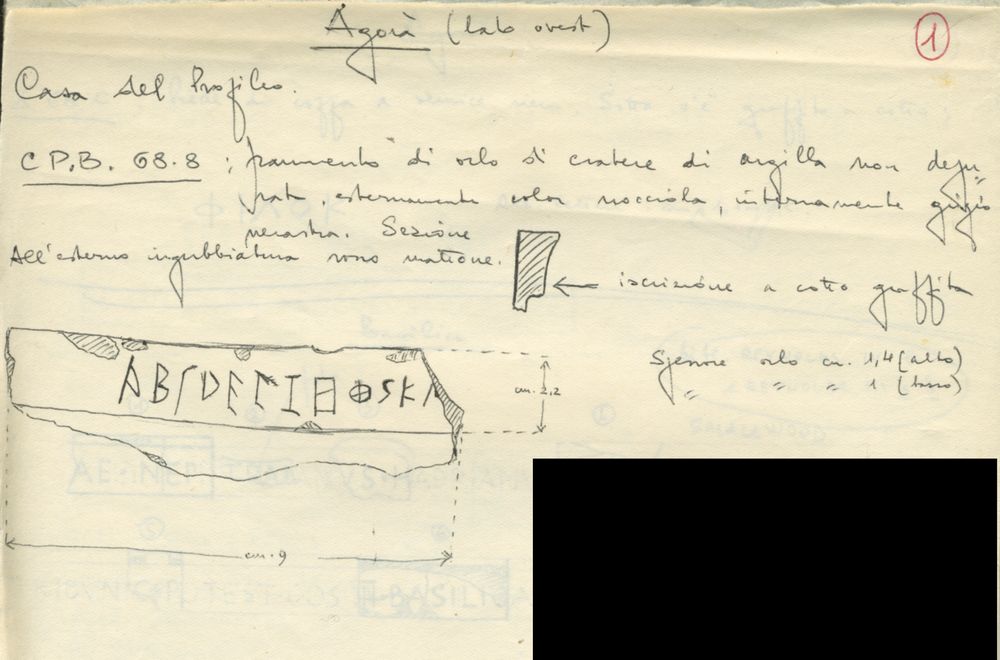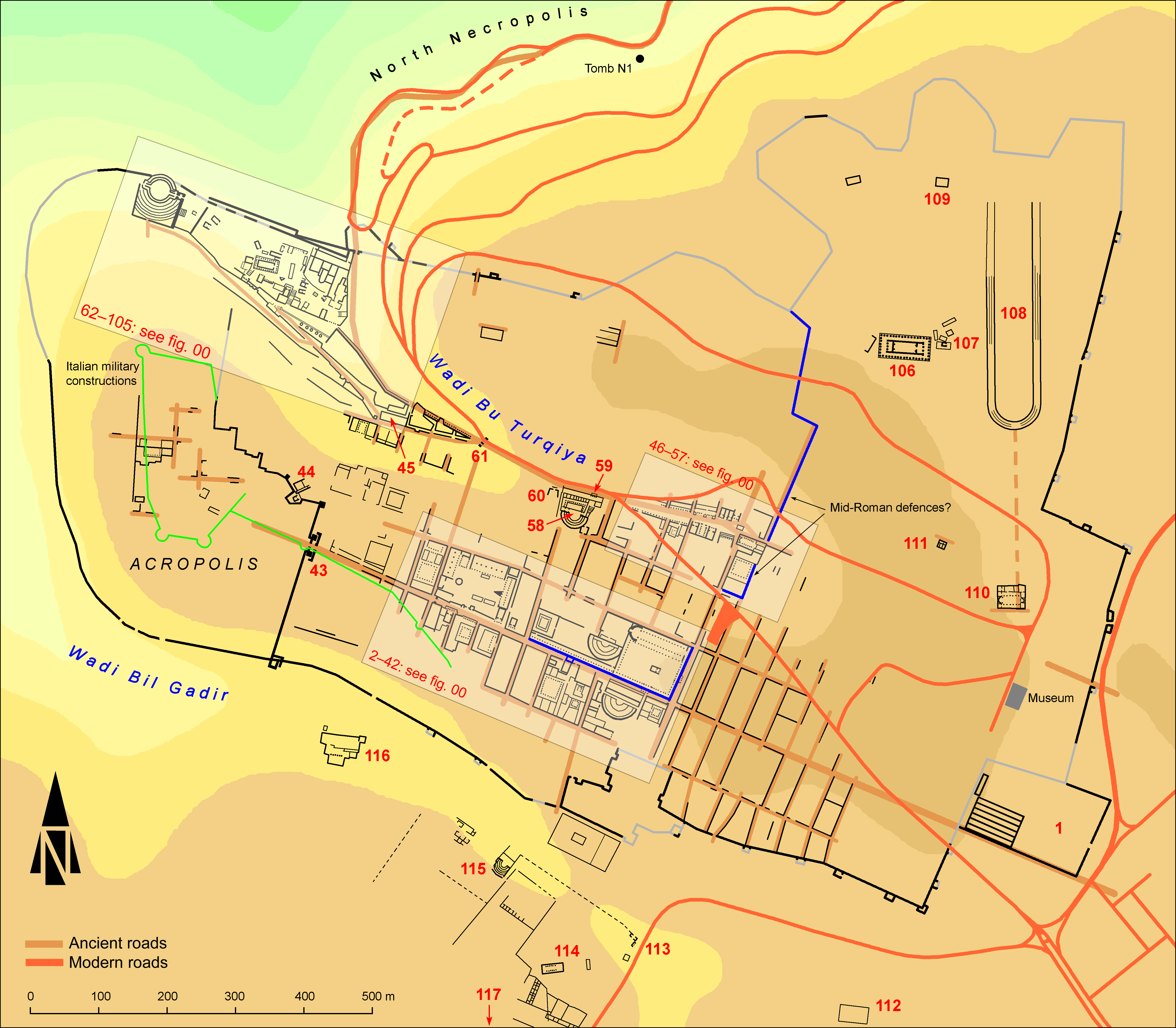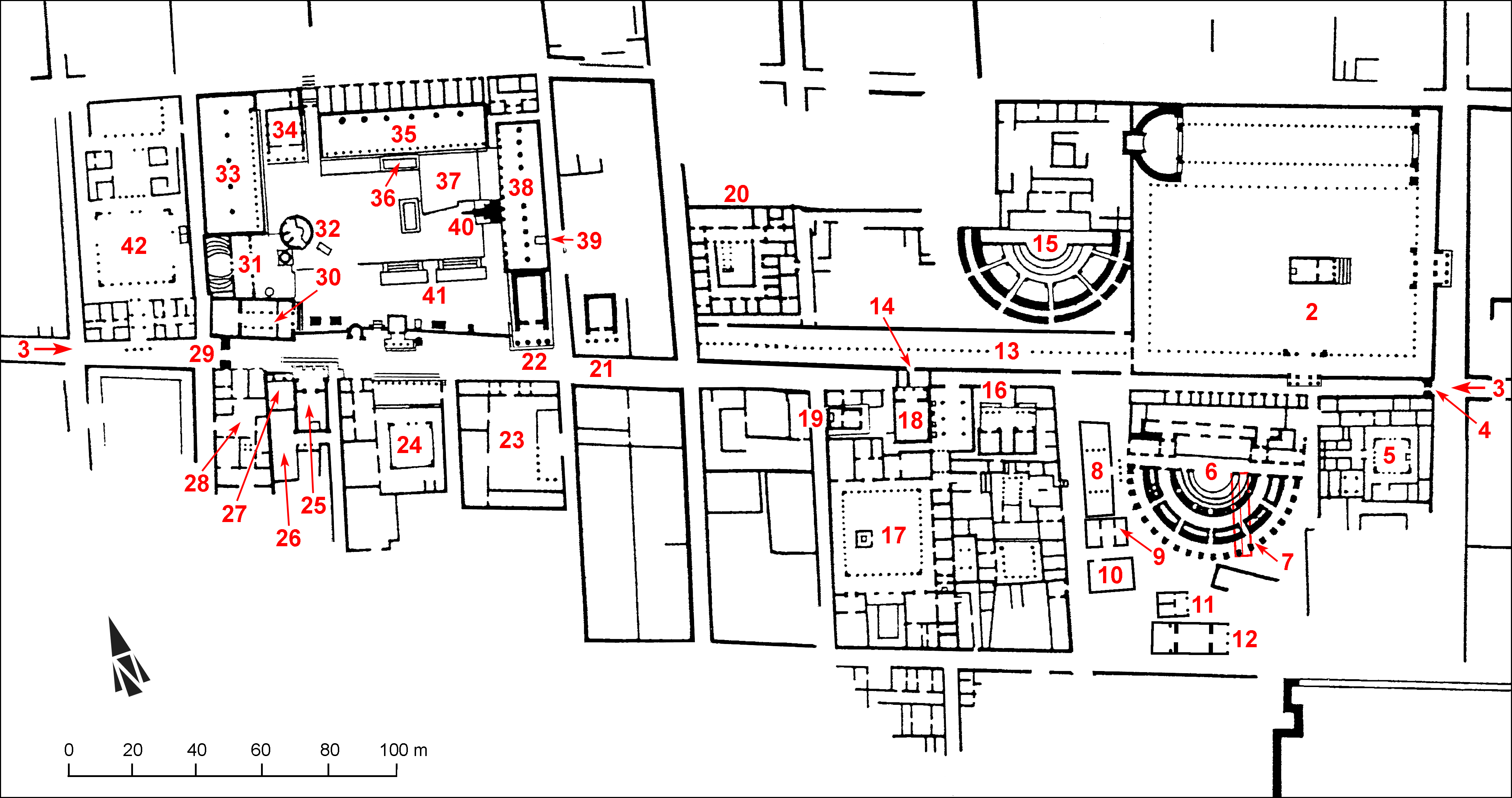EpiDoc XML:
IGCyr0007002
Trismegistos ID:
738104
Source description
Support: Fragment of crater of local ware (w: 0.095 × h: 0.03 × d: 0.014; diameter 0.225-0.253).
Layout: Scratched on rim.
Letters: 0.003 - 0.007; archaic forms of letters: closed heta, serpentine three-strokes iota.
Date: Probably ca. 550 BC (context).
Findspot: Found in 1968 at Cyrene ➚: West of agora, House by the Propylaeum.
Place of origin: Findspot.
Last recorded location: Seen by L. Gasperini in 1972 in Shahat: Cyrene Museum. Not seen by IGCyr team.
Text constituted from: Transcription from editor (CDL).
Bibliography
Gasperini 1973-1974 (=Gasperini – Arnaldi – Marengo 2008, pp. 111-118 (drawing)); IGCyr 000700 ➚. Cf. D'Angelo 2010, p. 108; Dobias-Lalou 2015, pp. 62-72; Marengo 2016, p. 163..
Text
French translation
Alpha, bêta, gamma, delta, epsilon, digamma, zèta, hèta, thèta, iota, kappa, lambda, [mu, nu, omicron, pi, san, qoppa, rho, tau, upsilon, phi, khi].
English translation
Alpha, beta, gamma, delta, epsilon, digamma, zeta, heta, theta, iota, kappa, lambda, [mu, nu, omicron, pi, san, qoppa, rho, tau, upsilon, phi, chi].
Italian translation
Alpha, beta, gamma, delta, epsilon, digamma, zeta, heta, theta, iota, kappa, lambda, [my, ny, omicron, pi, san, qoppa, rho, tau, ypsilon, phi, chi].
Commentary
About the fabric of the vase Gasperini, although inclined to judge it local, followed Stucchi's advice that it was Eastern, perhaps Rhodian ware. More precise information has been given as to the provenance and type of ceramics by D'Angelo, who dates it about 550 BC. This is somewhat later than the date proposed from the lettering (first half of the sixth century BC) by Gasperini.
The shape of beta, differing from that in use on Thera, confirms the statement that IGCyr0003002 had been written at Thera or in Cyrenaica by a Theran.
The presence of digamma in this alphabet does not imply that it was still used as a character with a phonetic value in words.
As for the eighth letter, its value should be aspirate, so that we translate heta. However, there are some clues of early psilosis in the Cyrenaean dialect, see Dobias-Lalou 2000, pp. 10-13 and 59 and Dobias-Lalou 2015, pp. 74-75. This letter might thus also be considered a 'dead' one.
CC BY-NC-SA 4.0 Deed Attribution-NonCommercial-ShareAlike 4.0 International License.
All citation, reuse or distribution of this work must contain a link back to DOI: https://doi.org/10.60760/unibo/igcyrgvcyr2 and the filename (IGCyr000000 or GVCyr000), as well as the year of consultation.



